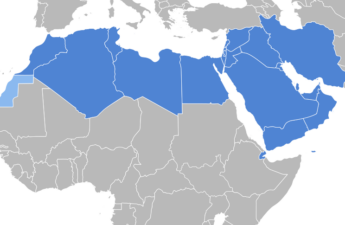By Anna Claire Vollers, Stateline
October 19, 2023
The Republican-led states that have refused to expand Medicaid are trying a variety of strategies to save struggling hospitals and cover more people without full expansion, which was one of the key provisions of the Affordable Care Act.
Georgia passed a partial expansion of Medicaid, the federal-state program that provides health coverage to low-income and disabled Americans, earlier this year. States such as Alabama and Florida have bumped up spending on programs that serve specific populations, such as pregnant women or residents with mental health needs. And Mississippi Republican Gov. Tate Reeves last month floated a plan to use federal money to increase Medicaid reimbursements to hospitals.
But health care advocates say those efforts are weak substitutes for full expansion — especially as non-expansion states continue to fare poorly on most health metrics.
A decade after the U.S. Supreme Court ruled that states’ participation in Medicaid expansion was voluntary, the 10 holdouts (plus North Carolina, which recently approved expansion but hasn’t implemented it yet) account for most of the rural hospital closures over the past decade, according to the American Hospital Association. They tend to have the highest percentages of uninsured adults, the highest infant and maternal mortality rates, and their residents are more likely to suffer from chronic conditions such as heart disease and diabetes.
“More Republican lawmakers in the past few years have softened to the idea that there’s something inherently not working in their states’ health care system, that people aren’t getting access to care, doctors aren’t being incentivized to stay, hospitals aren’t open,” said Jane Adams, government relations director for the American Cancer Society’s Cancer Action Network in Alabama.
“But they haven’t yet come to the conclusion that you must close the coverage gap first before you can address those other problems.”
Supporters of Medicaid expansion have long argued that giving more people health insurance would improve health outcomes and help keep the doors open at financially strapped hospitals, especially in rural areas.
But GOP critics in the non-expansion states — Alabama, Florida, Georgia, Kansas, Mississippi, South Carolina, Tennessee, Texas, Wisconsin and Wyoming — say it’s too expensive, question its effectiveness or remain ideologically opposed to government-funded health care.
Mississippi medicine
Every state operates its own Medicaid program within broad federal guidelines, using both state and federal money. The federal government picks up between 50% and 78% of the cost, depending on each state’s per capita income.
Under the 2010 Affordable Care Act, also known as Obamacare, states were empowered to expand Medicaid coverage to adults with incomes up to 138% of the federal poverty level — about $20,120 for an individual — with the federal government covering 90% of the cost.
But in many non-expansion states, most adults can’t get full Medicaid coverage no matter how low their incomes are, unless they’re pregnant, a parent or have a disability. And coverage for parents is meager. In Alabama, for example, a single parent with two children can’t qualify for Medicaid if he or she makes more than $4,476 per year.
Despite federal warnings, red and blue states aggressively cull Medicaid rolls
Three in 4 Americans say they have a favorable view of Medicaid, including a majority of Democrats, independents and even Republicans, according to a poll earlier this year from KFF, a health care policy research organization. About two-thirds of people living in non-expansion states say they want their state to expand Medicaid.
In Mississippi, Reeves’ Democratic opponent in next month’s gubernatorial election, Brandon Presley, has hammered the incumbent over his opposition to Medicaid expansion. Meanwhile, even some Republican state legislators have indicated their willingness to talk about expansion during next year’s session.
Mississippi Republican state Rep. Jason White, who is widely expected to be the next House speaker, told Mississippi Today in September that he plans to hold discussions on Medicaid expansion during the next legislative session. He said Republicans “have probably earned a little bit of the bad rap we get on health care in Mississippi” for refusing in the past to even consider expanding Medicaid.
Last month, Reeves announced a plan to support the state’s struggling hospitals through what he called “sweeping Medicaid reimbursement reforms.” His proposal includes having hospitals pay more in certain taxes to draw down more federal dollars, which he says would increase Medicaid reimbursements for their services. Reeves said the proposal would net Mississippi hospitals an additional $689 million, though critics remain skeptical. Last year, Reeves’ Medicaid administration told GOP lawmakers discussing a similar scheme that it wouldn’t work, according to Mississippi Today.
Reeves said he worked with medical professionals, including at least eight hospital executives, to create the plan.
Until Medicaid is expanded, Mississippi will continue to pay the price in lost dollars, lost jobs and lost lives.
– Roy Mitchell, executive director at the Mississippi Health Advocacy Program
Andy Woodard, president and CEO at Forrest General Hospital in Hattiesburg, was one of them. He told Stateline in an emailed statement that the new program would help maintain health care access in Mississippi.
“These efforts are the result of health care leaders across the state sitting down with the governor’s office over several months exchanging ideas and looking for common areas that would help solve our issues,” he said.
Kim Hoover, interim chief executive officer of the Mississippi Hospital Association, said in a statement to Stateline that the plan is close to one the association had discussed with lawmakers previously and that she hopes the federal government will approve it.
“Most Mississippi hospitals are struggling financially — large and small — but the situation is especially dire for our state’s rural hospitals,” she said. Eight of the state’s rural hospitals have closed since 2009, and five more have been in bankruptcy proceedings since then.
However, she said, the association continues to support full Medicaid expansion.
Roy Mitchell, executive director at the Mississippi Health Advocacy Program, which also supports expansion, noted that in a survey his organization conducted earlier this year, nearly three-fourths of respondents said they had difficulty affording care and nearly two-thirds said they delayed care or skipped it because of cost.
“Hundreds of thousands of Mississippians are struggling without health insurance,” he said in an interview. “Until Medicaid is expanded, Mississippi will continue to pay the price in lost dollars, lost jobs and lost lives.”
Other approaches
In July, Georgia launched a partial Medicaid expansion program, called Georgia Pathways to Coverage, that the state had to sue the federal government to enact. Georgia Pathways slightly relaxes the state’s strict coverage rules so that adults with incomes up to 100% of the federal poverty level — or who earn up to $14,600 a year — are eligible for Medicaid.
The plan makes Georgia the only state to currently require Medicaid recipients to work, a provision initially rejected by the Biden administration, though a few other states have tried work requirements in the past. Each month, Georgia recipients will have to complete 80 hours of work or job training to keep their coverage.
Georgia Republican state Rep. Mark Newton, who’s also an emergency physician, called the Pathways program “good news for all those people who are hardworking across rural Georgia” during a public meeting in August. He praised the program for increasing coverage for the “working poor” while allowing those who miss Georgia’s income cutoff to keep their commercial insurance plans if they have them. He pointed out the commercial plans pay hospitals at a higher rate than Medicaid does.
But some health care advocates have panned the program. Leah Chan, a health policy analyst at the Georgia Budget & Policy Institute, an Atlanta-based economic research and policy nonprofit, said that compared with full Medicaid expansion, Georgia Pathways will cost five times more per person while covering far fewer people.
More states OK postpartum Medicaid coverage beyond two months
The state plans for about 100,000 people to gain coverage in the program’s first year. If it reaches that number, coverage would cost the state about $2,490 per new enrollee, according to the institute analysis. But full Medicaid expansion would make about 482,000 Georgians eligible for coverage and would cost about $496 per new enrollee.
Since the Pathways program launched in July, a little more than 1,000 people have enrolled. And while it’s too soon to say why enrollment has been so low, Chan said, the work requirement will likely have an impact on how many people are able to apply for and maintain their health insurance through the program.
“With this program there’s the added layer of not just enrollment, but monthly reporting where you have to provide some verification of your 80 hours of employment, higher education, volunteering, etc.,” Chan said. “Even for people who are eligible, that act of doing that monthly reporting could keep them from being covered.”
The program is likely to be closely watched by Republicans in other states, as some in Congress have recently pushed for allowing work requirements for Medicaid enrollees.
In Alabama, Republican Gov. Kay Ivey has cited cost as her main reason for not expanding Medicaid. Instead, the state legislature has pursued a variety of smaller bills and policies to shore up health care in the state. Last year, for example, Alabama legislators approved a budget that extended Medicaid postpartum coverage to 12 months after the end of a pregnancy. The state has also increased funding for crisis mental health services and started offering breast and cervical cancer screenings for low-income women.
“These are great programs,” said Adams, of the Cancer Action Network, whose organization works with other Alabama-based groups in support of increased health care funding. “But if we just expanded Medicaid, we wouldn’t need to fight for increased funding for programs like that. You don’t need special screening coverage programs if your population has health insurance.”
Half a million people in 11 states have lost Medicaid coverage since April
Florida, too, has tried more limited alternatives to full expansion, said Erica Monet Li, policy analyst at the Florida Policy Institute, a nonpartisan and nonprofit research organization based in Orlando.
“Every legislative session we see small bills that legislators try to pass for certain Medicaid-ineligible populations,” said Li. One example, she said, was a bill from this year’s legislative session that would have expanded Medicaid for certain disabled populations; it died in committee.
Critics of expansion alternatives say many of the programs don’t address the fundamental problem of low-wage workers not having health insurance, which begets a host of other issues — including hospital closures and difficulty attracting a health care workforce.
“We can keep modifying the programs around the edges and making changes which do offer increased access either to a certain population or for a certain time period,” said Alison Yager, executive director of the Florida Health Justice Project, a nonprofit that advocates for health care access.
“Those sorts of changes are critical, but they fall far short of what we really need to do, which is ensure everyone has access to health coverage.”
SUPPORT NEWS YOU TRUST.
Stateline is part of States Newsroom, a nonprofit news network supported by grants and a coalition of donors as a 501c(3) public charity. Stateline maintains editorial independence. Contact Editor Scott S. Greenberger for questions: info@stateline.org. Follow Stateline on Facebook and Twitter.


